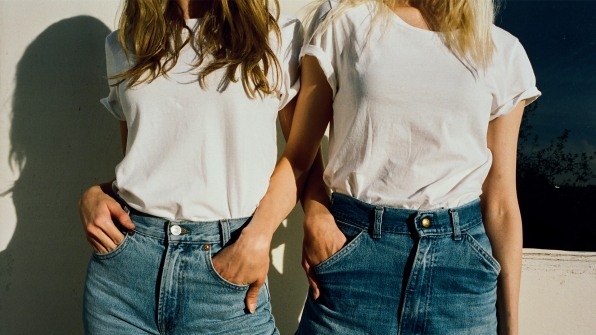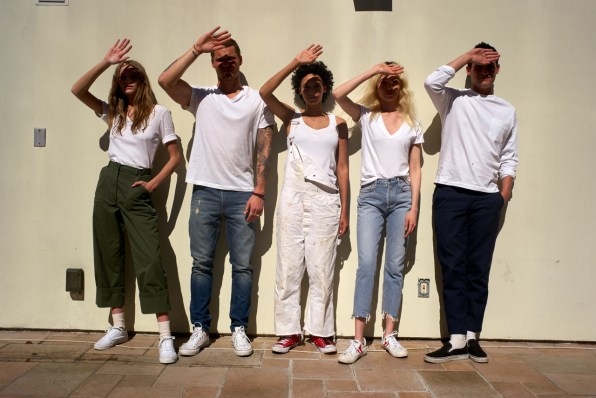If you stain this shirt, you can have it recycled into a new one
If you spill wine or coffee on a T-shirt from a new brand called For Days–or if the shirt rips or otherwise wears out–the company wants it back. Through a new subscription model, the startup is attempting to create a circular economy for basics: Instead of owning T-shirts, you use them until you get an inevitable stain or hole. Then the company sends you a new shirt, and recycles the old one into fabric that can be used to make more.
“[In fashion] we have no solution to the end of life of these products, so we have this cycle of produce, purchase, pollute,” says Kristy Caylor, founder of For Days, who previously co-founded the luxury brand Maiyet and launched businesses within Gap.

Each year, the average American throws out roughly 80 pounds of textiles. While some higher-end clothing might be resold or donated, a flawed T-shirt is rarely recycled. Of the 10 T-shirts the average consumer buys in a year, six might end up in the landfill.
Caylor experienced this herself in a recent move, when she purged old clothes, giving some away and selling others. “I was still left with a pile of crap…it was single socks, and pit-stained T-shirts, and stretched-out pajamas,” she says. “I was like, wow, there’s really no residual value–this cannot be part of the ‘sharing economy’ as we know it today because nobody wants it.”

With the company’s subscription model, old T-shirts are recycled, while consumers have an endless supply of fresh shirts, all made from 100% organic cotton (since the startup just launched, the shirts are currently made from new cotton, but will soon begin incorporating recycled fiber as shirts are returned). A three-shirt subscription costs $12 a month, six shirts are $24, and 10 shirts are $36. All of the subscriptions include free shipping; Caylor notes that shipping shirts back and forth is a relatively small part of the carbon footprint of clothing, but the company plans to buy carbon offsets to make the products carbon neutral.
The website gives members feedback on how much water and energy they’ve saved, and how much waste they’ve prevented, as they use the system. While its possible that the system might promote a little laziness–why struggle to get stains out in the laundry if you can just get a brand new shirt?–it’s probably true that someone who doesn’t want to take the time to take out stains would otherwise just throw the clothing away.

When customers begin sending back old shirts, they will be mechanically recycled, which involves chopping up the cotton, adding water, and turning it into pulp to make it into new yarn. But the company is also exploring partnerships with companies that have chemical technology that can recycle cotton more completely. (Right now, a T-shirt made with recycled cotton still has to use a large percentage of virgin fiber; newer chemical methods can use more recycled fiber.)
The startup is currently working with a factory in LA to make the shirts and another facility that recycles fabric, but is also building its own manufacturing facility in LA, focused on creating an efficient process that eliminates waste. Eventually, it plans to incorporate manufacturing and recycling under one roof. The startup may also offer subscriptions to other types of clothing–potentially anything that someone wouldn’t want to keep long term. “I think we can expand as far as we can innovate on materials, manufacturing, and upcycling,” Caylor says.
(10)



